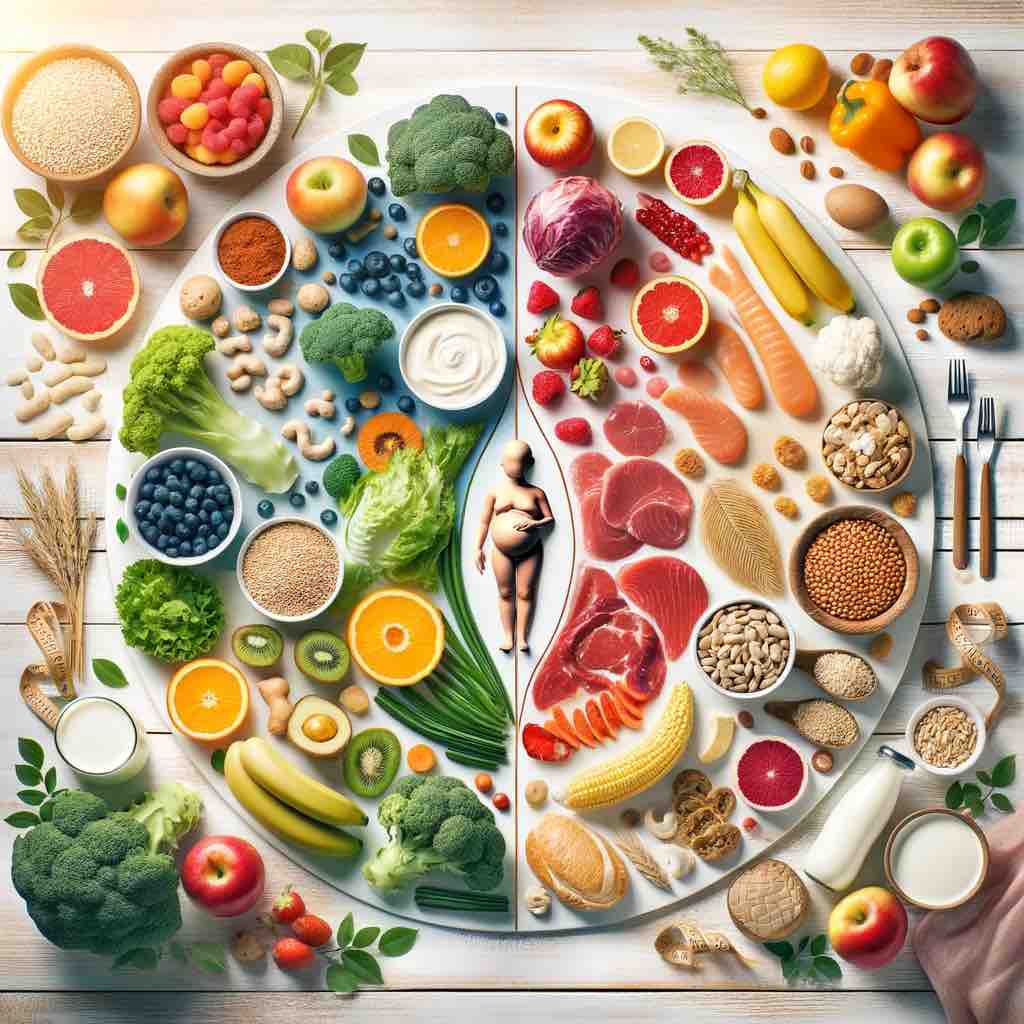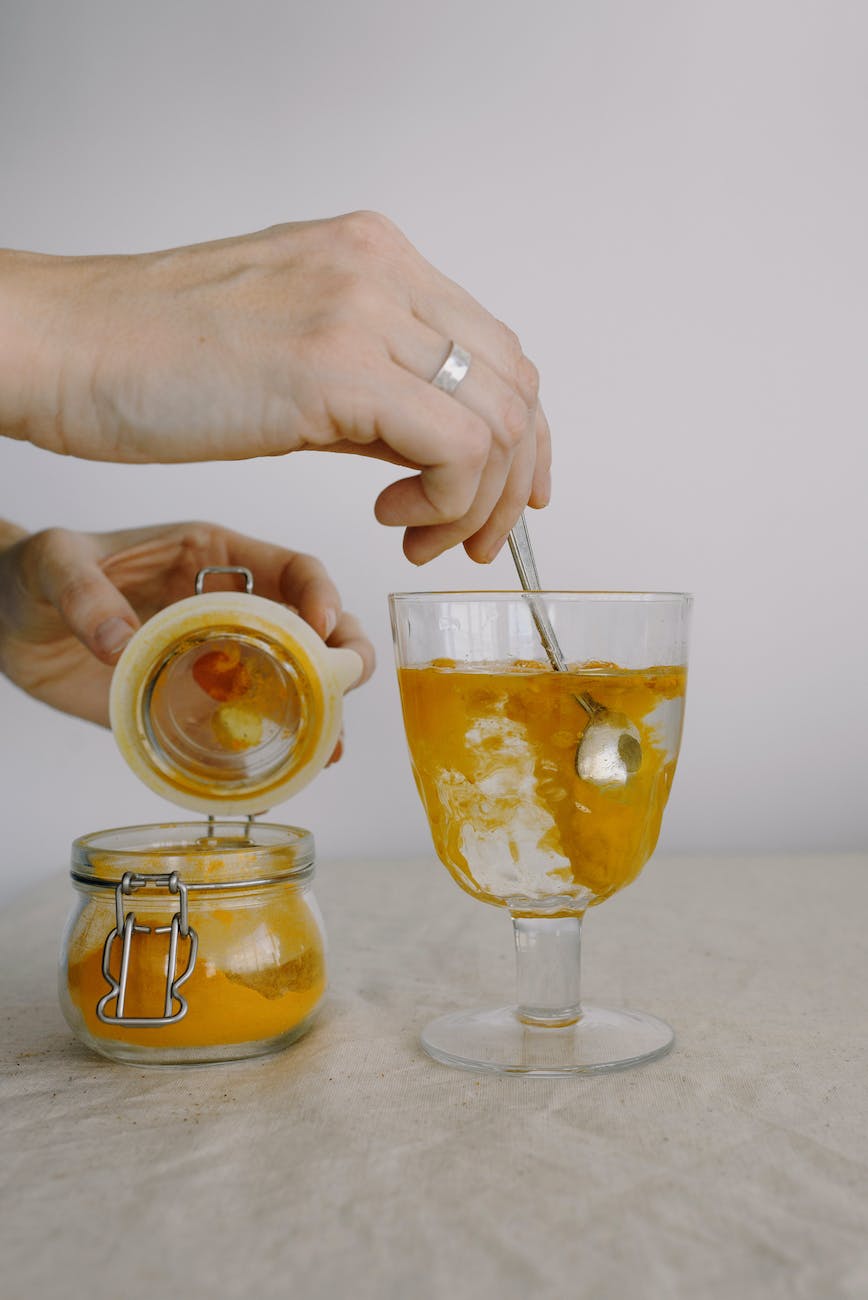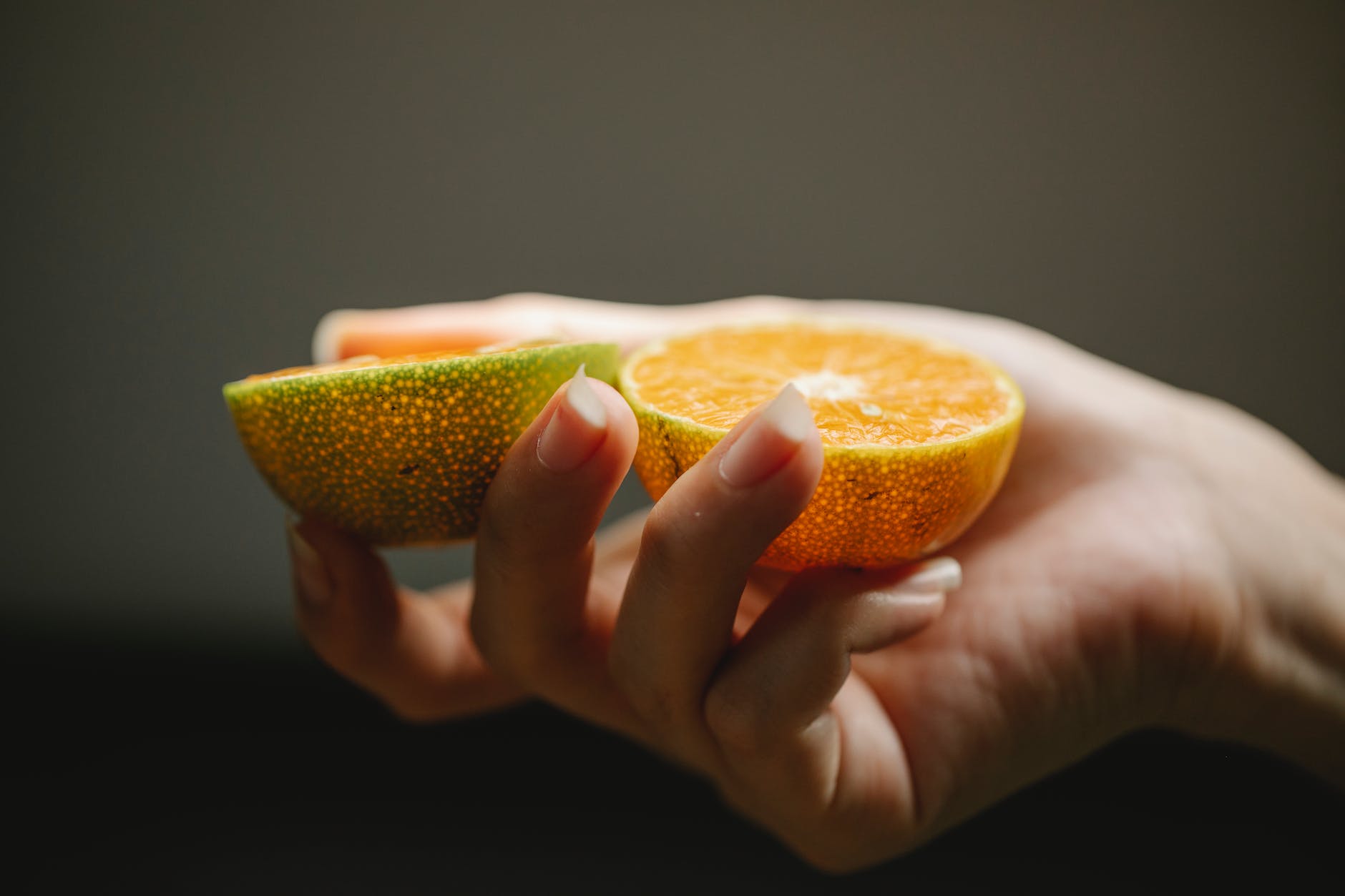
Journeying Beyond Postpartum
As you move beyond the immediate postpartum phase, your focus gradually shifts back to establishing a regular, balanced diet that supports your long-term health and well-being. This transition is an opportunity to reassess and realign your dietary habits to suit your evolving lifestyle as a new parent. Let’s delve into detailed strategies for a seamless transition to a regular diet, ensuring optimal health and vitality in your life as a new mother.
Tailoring Your Nutritional Profile Post-Pregnancy
- Caloric Needs Reassessment: Evaluate your daily caloric requirements considering your current activity level, lifestyle changes, and whether you are still breastfeeding.
- Macro and Micronutrient Balance: Aim for a diverse intake of nutrients. Incorporate a wide range of fruits, vegetables, whole grains, lean proteins, and healthy fats. Pay special attention to iron, calcium, magnesium, and B-vitamins, which are crucial in the postpartum phase.
- Sustained Hydration: Maintain a focus on hydration. Water aids in postpartum recovery, supports lactation (if continuing), and helps maintain energy levels.
Managing Post-Pregnancy Weight
- Gradual Weight Loss Approach: If weight loss is a goal, adopt a gradual and sustainable approach. Rapid weight loss can be detrimental, particularly during the recovery period.
- Incorporating Mindful Eating Practices: Embrace mindful eating to enhance your relationship with food and to better recognize hunger and fullness signals. This approach can lead to more satisfying and healthful eating experiences.
Diet Diversity and Enjoyment
- Food Reintroduction: Gradually reintroduce foods you might have avoided during pregnancy or breastfeeding, like certain fish, caffeine, or spicier foods. Monitor how your body responds to these reintroductions.
- Culinary Exploration: Experiment with new recipes and flavors to keep your diet interesting and enjoyable. Cooking can be a creative outlet and a way to ensure a healthy diet.
- Catering to Changed Palates: Acknowledge that your taste preferences might have changed post-pregnancy. Explore different cuisines and ingredients that align with your current palate.
Fostering Digestive Wellness
- Fiber Focus: High-fiber foods like fruits, vegetables, legumes, and whole grains are essential for maintaining digestive health and preventing issues like postpartum constipation.
- Gut Health with Probiotics: Incorporate probiotic-rich foods such as yogurt, kefir, sauerkraut, and kimchi to support gut health and overall well-being.
Mental and Emotional Well-being through Diet
- Nutrition’s Role in Mental Health: Recognize the impact of diet on mood and energy levels. Foods rich in omega-3 fatty acids, magnesium, and antioxidants can have a positive effect on mental health.
- Body Image and Self-Care: Embrace a positive body image and practice self-care through balanced nutrition. Celebrate the incredible journey your body has been through and nourish it with respect and care.
Practical Meal Planning for Busy Parents
- Efficiency in the Kitchen: Embrace meal planning and prepping strategies to manage time effectively. Consider simple, nutritious recipes that can be prepared in bulk and stored for convenience.
- Snacking Smart: Keep healthy snacks within easy reach to maintain energy levels throughout the day. Options like cut-up vegetables, nuts, fruit, and whole-grain crackers are excellent choices.
Addressing Special Dietary Needs
- Individualized Diet Considerations: If following specific dietary preferences or restrictions, ensure that your diet is well-rounded and nutritionally complete. Consulting with a dietitian can provide personalized guidance.
Cultivating Healthy Eating Habits for the Family
- Inclusive Family Meals: As your child grows, plan meals that are nutritious and enjoyable for the whole family, fostering healthy eating habits from an early age.
- Continuous Learning and Adaptability: Stay informed about nutritional best practices and be open to modifying your diet as your family’s needs evolve.
Ongoing Health Monitoring
- Regular Health Check-ups: Continue to consult with healthcare professionals to monitor your health and receive guidance on any nutritional concerns or changes in your dietary needs.
Forward Focus: Lifelong Nutritional Wellness
As we conclude our series, remember that your journey towards maintaining lifelong nutritional health is an evolving process. Stay engaged with current nutritional insights and practices, ensuring you and your family thrive in health and happiness. The journey of motherhood is enriched with continuous learning and self-care, with nutrition being a key pillar of your overall well-being.
FAQs for Post-Pregnancy Nutrition
- How many extra calories do I need post-pregnancy?
- If you’re breastfeeding, you might need about 500 extra calories per day. If not, your caloric needs will gradually align with a normal, balanced diet based on your activity level.
- What nutrients should I focus on post-pregnancy?
- Prioritize protein, iron, calcium, vitamin D, and fiber. These support tissue repair, bone health, and overall recovery.
- Is it safe to diet for weight loss immediately after giving birth?
- It’s recommended to focus on a balanced, nutrient-rich diet rather than a restrictive diet, especially if breastfeeding. Gradual weight loss is healthier and more sustainable.
- How can I manage post-pregnancy constipation?
- Increase your fiber intake with foods like whole grains, fruits, and vegetables, and ensure you’re drinking plenty of water. Physical activity also helps.
- What foods should I eat to boost my energy levels?
- Focus on a balanced diet with complex carbohydrates (like whole grains), lean proteins, and healthy fats. Small, frequent meals can also help maintain energy levels.
- Can I still take prenatal vitamins after childbirth?
- Yes, continuing prenatal vitamins, especially if breastfeeding, can help ensure you’re getting essential nutrients like iron and calcium.
- How soon can I start exercising post-pregnancy?
- This depends on your delivery and overall health. Generally, gentle exercises like walking can be started relatively soon, but always consult with your healthcare provider.
- Are there specific foods that can help with postpartum recovery?
- Foods rich in vitamins C and E, zinc, and protein can aid in healing. Include citrus fruits, nuts, seeds, lean meats, and leafy greens.
- What dietary changes can help with postpartum mood swings or depression?
- A balanced diet rich in omega-3 fatty acids, whole grains, fresh fruits, and vegetables can support mental health. Avoid excessive caffeine and processed foods.
- How can I ensure a balanced diet as a busy new mom?
- Plan and prepare meals in advance, opt for healthy snacks like fruits and nuts, and consider simple, quick recipes. Don’t hesitate to seek help with meal prep if needed.
Blog Tags for the Post
postpartum nutrition, breastfeeding diet, weight management, healthy eating, dietary fiber, meal planning, vitamin supplements, post-pregnancy exercise, mental health, family meals, new mom wellness, balanced diet, hydration, recovery foods, motherhood health













